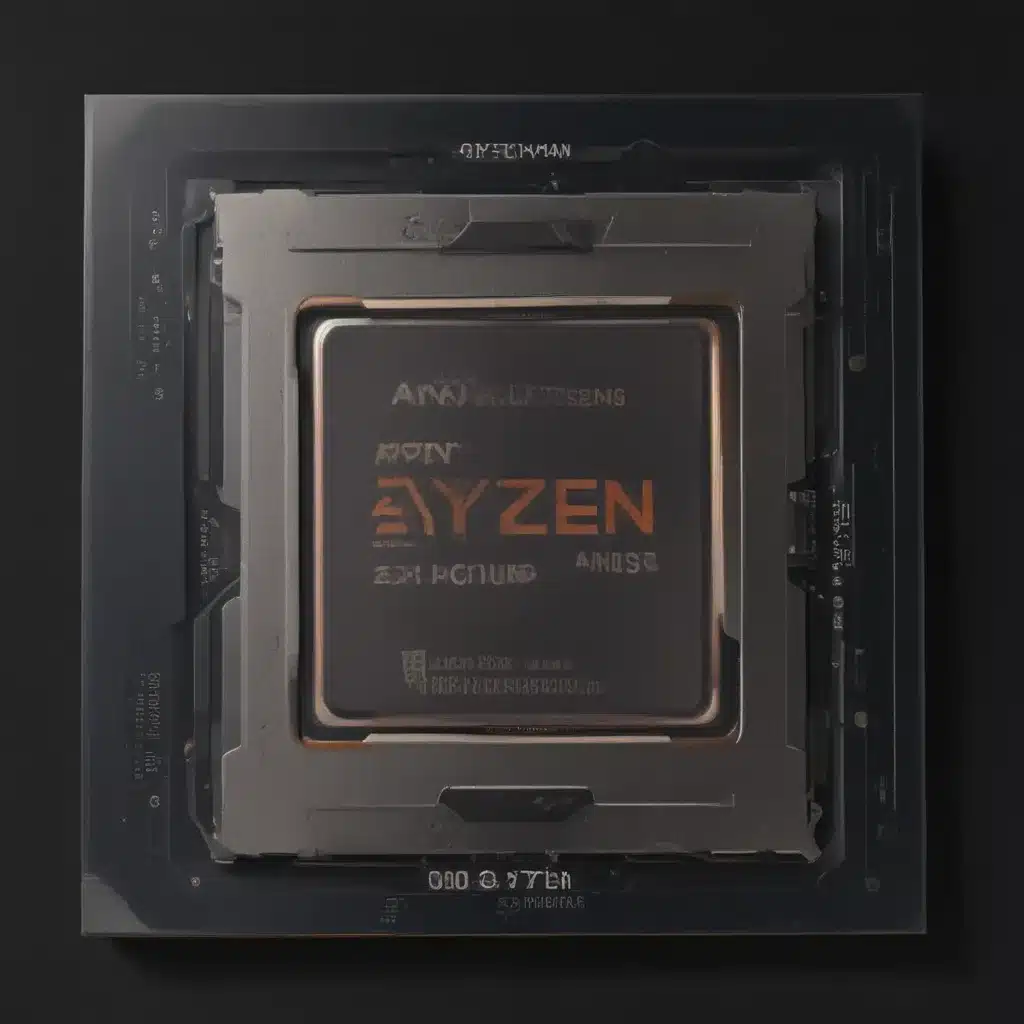The Zen Revival: From Bulldozer’s Ashes to Ryzen’s Rise
Cast your mind back, if you will, to a time not so long ago when the mere mention of AMD in the same breath as “high-performance CPUs” would elicit little more than a hearty chuckle. The company’s ill-fated Bulldozer architecture had left such a bitter taste in the mouths of enthusiasts that many had written off AMD’s chances of ever truly competing with Intel again [1].
Little did they know, however, that the engineers in AMD’s labs were cooking up something truly special. Zen, the architecture that would go on to power the company’s revolutionary Ryzen lineup, represented a phoenix-like rise from the ashes of Bulldozer. With a staggering 52% IPC (instructions per clock) improvement over its predecessor, Zen proved that AMD was back in the game [1].
Zen 2, Zen 3, and the Steady March Towards Dominance
As impressive as Zen’s debut was, AMD wasn’t content to rest on its laurels. The company followed up with Zen 2 and Zen 3, delivering respectable IPC gains of 15% and 19% respectively [1]. While the increases may not have been as dramatic as the initial Zen leap, they nonetheless cemented AMD’s position as a worthy challenger to Intel’s long-held CPU superiority.
One of the key factors in AMD’s resurgence has been its willingness to embrace newer manufacturing processes. Zen 3, for example, is built on a refined 7nm node that allows for higher clock speeds and improved power efficiency [2]. This, coupled with the architecture’s impressive IPC boost, has enabled Ryzen 5000-series processors to dethrone Intel’s best and become the go-to choice for enthusiasts and professionals alike.
Zen 4 and the Promise of a New Frontier
But the story doesn’t end there, my friend. AMD is already gearing up for its next big leap with Zen 4, and the early whispers are positively tantalizing. Rumor has it that Zen 4 will deliver an IPC increase of over 25%, with a total performance gain of a staggering 40% [3].
What’s more, there’s even talk of Zen 4 finally breaking through the 5GHz barrier for all-core performance, thanks to the move to TSMC’s cutting-edge 5nm process node [3]. This could be a game-changer for tasks that rely heavily on single-threaded performance, such as gaming and certain types of content creation.
A Chiplet Revolution: Zen 4 and the Future of Desktop CPUs
But the juiciest rumors about Zen 4 have to do with its potential chiplet-based design. You see, AMD has been experimenting with the concept of separating different components of its CPUs onto discrete chiplets, and Zen 4 could be the first desktop platform to fully embrace this approach [4].
Imagine a Ryzen 7000-series chip that combines a powerful Zen 4 CPU chiplet with a dedicated graphics chiplet based on the company’s latest RDNA 3 architecture. The potential for such a setup is staggering, as it would allow AMD to offer truly console-like performance in a desktop package [5].
And the flexibility doesn’t stop there. Rumor has it that Zen 4’s I/O die (the central hub that manages the CPU’s various interfaces) may even incorporate some Zen 4 IP, hinting at the possibility of a Zen 3+ transition to the AM5 platform before the full Zen 4 launch [3]. This could give early adopters a taste of what’s to come without having to wait for the big reveal.
Zen 5 and Beyond: AMD’s Vision for the Future
Of course, the future doesn’t stop at Zen 4. AMD is already looking ahead to the next chapter in its CPU saga, and the whispers about Zen 5 are nothing short of tantalizing [3].
According to the rumor mill, Zen 5 could deliver a “Piledriver to Zen 1”-like jump in IPC, which would equate to a roughly 40% improvement over Zen 4 [3]. That’s a staggering prospect, and it suggests that AMD is intent on maintaining its momentum and widening the gap between its CPUs and the competition.
But the real kicker is the potential for Zen 5 to incorporate on-die high-bandwidth memory (HBM), akin to Intel’s upcoming Sapphire Rapids processors [6]. This could effectively create a massive “L4 cache” that would further enhance performance and reduce the reliance on system memory bandwidth.
Closing Thoughts: The Future is Bright for AMD
As you can see, the future of AMD’s Ryzen lineup is looking brighter than ever. From the impressive Zen 4 architecture to the tantalizing prospects of Zen 5 and beyond, it’s clear that the company is poised to continue its assault on Intel’s long-held CPU dominance.
Of course, there are still challenges to overcome, such as potential wafer supply constraints due to Apple’s increasing reliance on TSMC [3]. But if AMD’s recent track record is any indication, the company has the engineering prowess and the determination to navigate these hurdles and emerge victorious.
So, my fellow tech enthusiasts, buckle up and get ready for the next chapter in AMD’s incredible comeback story. The Zen revolution is far from over, and the future looks positively electrifying.
References
[1] Knowledge from https://www.reddit.com/r/Amd/comments/11r0idg/branding_older_architectures_like_zen_2_or_zen_3/
[2] Knowledge from https://chipsandcheese.com/2021/02/05/amds-past-and-future-cpus/
[3] Knowledge from https://www.reddit.com/r/Amd/comments/18aoi17/intel_compares_amd_zen2_architecture_in_ryzen/
[4] Knowledge from https://arstechnica.com/gadgets/2024/01/ryzen-8000g-review-an-integrated-gpu-that-can-beat-a-graphics-card-for-a-price/
[5] Knowledge from https://www.forbes.com/sites/moorinsights/2022/08/30/amds-ryzen-7000-series-takes-gaming-and-content-creation-to-new-heights-with-zen-4/
[6] Knowledge from https://www.amd.com/en/products/processors/desktops/ryzen.html
[7] Knowledge from https://www.anandtech.com/show/18718/amd-2023-ryzen-mobile-7000-cpus-unveiled-zen-4-phoenix-takes-point
[8] Knowledge from https://www.amd.com/en/newsroom/press-releases/2023-10-19-amd-introduces-new-amd-ryzen-threadripper-7000-ser.html













